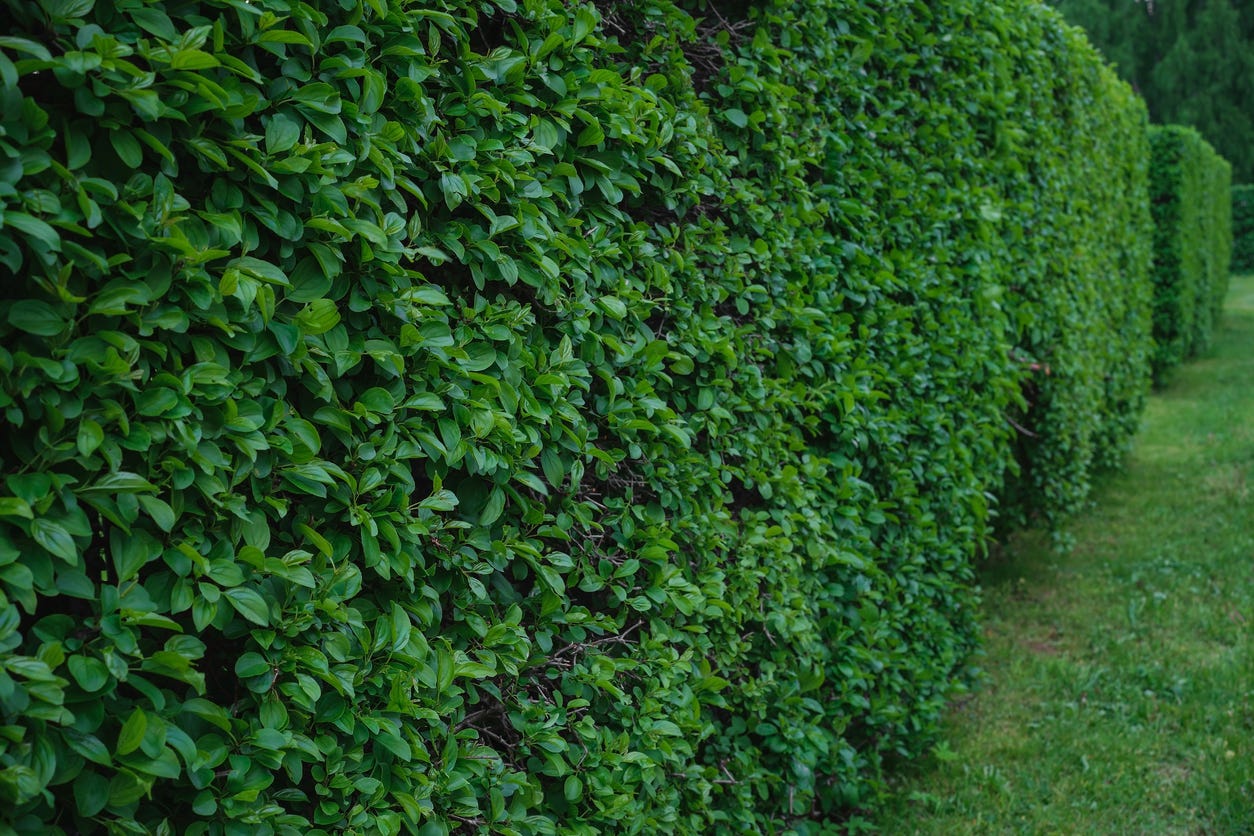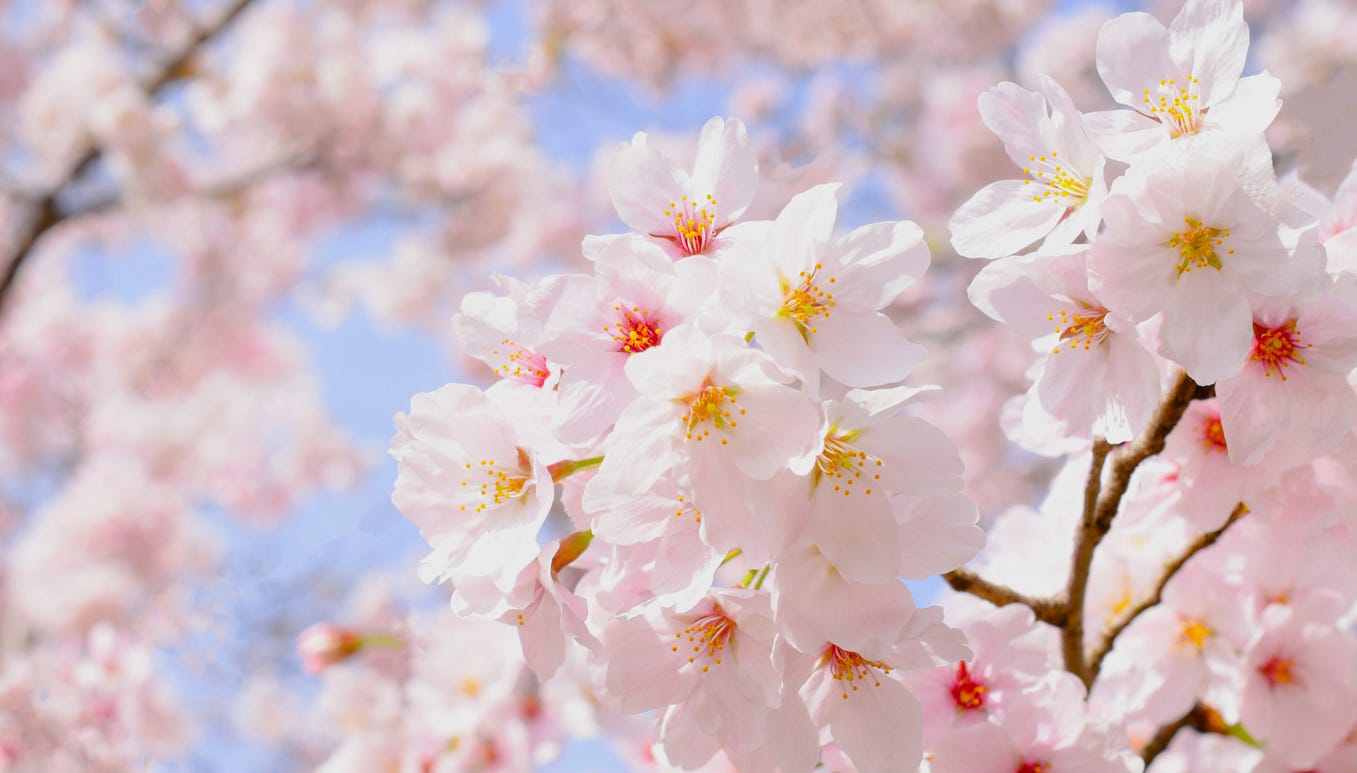The Garden
After He Said Cancer | A Memoir
A gray and wet Seattle winter was giving way to a sunny spring. The world was waking up, except for our yellow, somewhat overweight lab. She was fast asleep on the backyard patio, splayed out to catch the rays of sunshine on her belly. Every now and then, her limbs would jerk as she ran through grassy fields in her dream. Wherever she was, I imagined that she felt the wind on her face and had the feeling that she was truly free.
I sat next to the dog with a cup of tea, enjoying a peaceful moment, and trying hard not to think about anything. Along the back fence of our yard grew a tall hedge of Portuguese laurels, so thick it looked like a giant wall of green. Their dark, waxy leaves were rustling in the wind, a whispering and soft sound that put me at ease. Whatever came next, we would figure it out together.
It would be another month until he had the mammogram of the second lump, when we would learn if the lump had changed and if a biopsy was recommended. Worst case scenario, it was cancer, and the chemo rodeo might begin again. If he needed more chemotherapy, they would opt for a different regimen than the one he had the first time. Although these treatments had been effective, it would be too hard on a person’s heart and body to take the same drugs more than once. The drugs would need to be gentler, which was something that a drug should never be with cancer.
Tell your doctor that I am done with this lump and just want it removed, I told him. He sent an electronic message to his doctor, and in a few hours, he received a reply. Wait and see what the mammogram shows, and then we will decide what to do. It was a prudent, professional, and evidence-based response. I might have said something similar to my patients if they had demanded surgery before we had even gotten the test result.
But I couldn’t forget the names and stories of the two men I knew who had been diagnosed with breast cancer twice, once on each side. In each case, it was thought that a second breast cancer in a man was nearly impossible. Just as I felt that my husband couldn’t get this kind of cancer. Young, healthy, no family members with breast cancer. If they refused to do a biopsy, I would bring up the story of a man who died in his late forties from a small lump in his breast that they had waited too long to take out. It didn’t look suspicious on his mammogram, so they waited and sat on their hands.
I sighed and returned to studying the rhythmic movement of the leaves and their mesmerizing color. They weren’t as green as I originally thought, especially where the shadows hit them, and they faded to black. For a moment, I recalled the blackness in my chest the first year after his diagnosis—crushing, suffocating. After only a few seconds, I shivered and stretched my arms to the sun. When I looked at the leaves again, I saw a dappled light filtering through the laurels, highlighting the emerald green leaves amidst the darker ones.
The pressure in my chest was still there, but it was only a shadow of its former self. Somehow, I was grateful for it. I knew that I could always count on the pit in my chest to be a barometer of my mental health, and the internal tug-of-war that I couldn’t win. It would remind me of the untenable position of trying to be both a physician and a caregiver. One side would surely lose.
The wind picked up, and the laurels murmured their assent to this wandering train of thought. I looked around the garden and let my breath out in a long exhale. The garden was getting overgrown, a sign of how differently I spent my time these days. Long tufts of yellow-green mondo grass had taken over the pots, crowding out the flowers that had long since died off. There was a beauty to this wild and unkempt garden that I could appreciate and learn to love. The rosemary and thyme were still thriving, the last symbol of my dedication to keeping up the flowerpots before he got sick. In the spring, the grass camouflaged small bird nests tucked into the pots, keeping the young birds off the ground and safe from predators.
I got up and stepped over the slumbering animal. Without thinking, I walked to the patio's edge and removed my shoes and socks. An urge to walk barefoot in the grass came over me. The damp grass felt soft, grounding, forgiving. I took a few steps and studied the backyard I had neglected for so long. A corner had become overgrown with evergreen shrubs. If we removed them, there would be room to plant something to remind me of the enduring love that made me feel I couldn’t live without him.
Perhaps I would plant a cherry tree. Last week, cherry trees bloomed in Seattle. Overnight, hundreds of pink and white blooms burst forth from the trees so unexpectedly that the trees seemed to struggle to hold themselves upright under their weight. Then, as suddenly as they appeared, the blooms fell to the ground, leaving only a carpet of petals.
Thank you for being one of my readers. I appreciate you very much! If you’d like to support my work, you can do so by:
Hearting this post so that others are encouraged to read it
Leaving a comment (I do my best to respond to each of them), which increases engagement and visibility of my posts
Sharing this post by email or on social media
Taking out a free or paid subscription to this Substack
Leaving me a tip by buying me a coffee.





You are completing your journey Kristina. This is an important moving moment. For you. For your husband. I wish you both all the rays of sunshine and health. Thank you for your insight and beauty. x
Beautifully written Kristina. Only someone who has never been there can say there is no way you can fall apart and pull together at the same time, but you can, and you do, and you will.